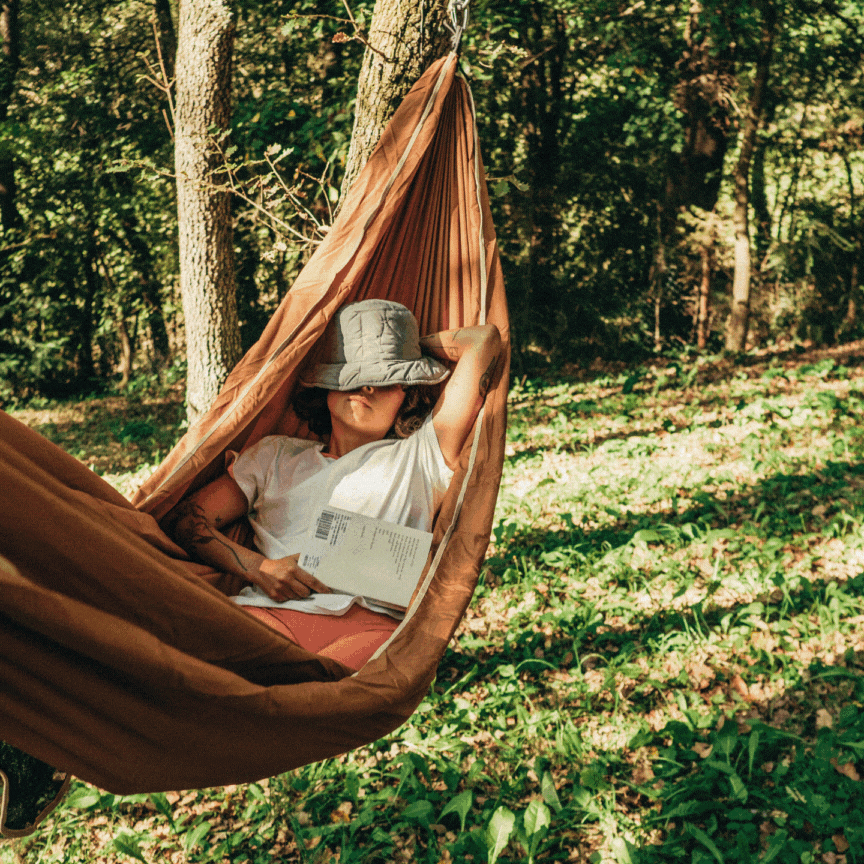
About Stress Management and Relaxation Techniques
Stress can cause weight loss or weight gain due to its effects on bodily processes (Geiker, et all, 2017). Stress also affects the production of stress hormones and the GI system, which can lead to changes in appetite and metabolization and increased inflammation (Kiecolt-Glaser, Janice K., 2010).
The body to produces more of the hormone cortisol due to stress (Cay, et all, 2018), which promotes body fat and makes it harder to lose weight, especially around the middle. Higher cortisol levels can also cause people to build up fat around their bellies. Stress can also cause people to crave foods that have a lot of sugar, calories, and fat (Chao, et all, 2015).
Studies have shown that stress management techniques in addition to dietary interventions can lead to weight loss (Xenaki, et all, 2018). In a study by Christaki et al. (2013), relaxation techniques were applied in overweight and obese women for eight weeks with significant results on weight loss. In another study of the same duration, similar stress management techniques were applied to overweight and obese women, and a statistically significant weight loss was also evident (Xenaki, et all, 2018).
There are a number of ways to deal with stress, including ways to relax. Here are some stress management and relaxation techniques to consider:
Stress Can Create Tension in Our Bodies: How Progressive Muscle Relaxation Can Help
Stress is a natural part of life, and it affects everyone in different ways. It can be stressful for people trying to overcome the challenges of overweight life. When we experience stress, our bodies respond by releasing hormones that can increase our heart rate, breathing rate, and muscle tension. This physical response can help us deal with short-term stressors, like running away from danger, but it can also lead to chronic tension in our bodies that we may not even be aware of.
One technique that can help us identify and release tension in our muscles is called Progressive Muscle Relaxation. This technique involves tensing and then relaxing different muscle groups throughout the body, starting with the feet and working up to the face. The goal is to notice the difference between feeling tense and feeling relaxed, and ultimately to feel more relaxed overall.
How to practice progressive muscle relaxation
To practice Progressive Muscle Relaxation, find a comfortable place to sit or lie down where you won’t be interrupted. Take a few deep breaths to relax your body and mind, and then begin the following sequence:
Feet: Curl your toes in tightly to feel the tensing muscles of the foot, of both feet. Hold this for a few moments before releasing the tension and relaxing the feet.
Calves: Point your feet down, pointing the toes down toward the floor, feeling the tension in your calf muscles. Hold that for a few moments and release.
Thighs: Point the toes upward toward the ceiling, feeling the tension in the large muscles of the thighs. Hold that for a few moments, and when you’re ready, begin to release.
Buttocks: Tighten the muscles of the buttocks as you sit or lie on the floor. Hold this for a few moments and gently relax.
Abdomen: Tighten the muscles of the abdomen as if you’re bringing your belly button in, pushing your belly button in toward the spine. Hold here for a moment and gently relax.
Back: Gently arch the lower back and see if you can feel the tension along the muscles in the back as you arch. Hold for a moment or two, and then slowly release.
Shoulders: Bring your shoulders up towards your ears, squeezing them up, holding them for a moment, and slowly and gently releasing the shoulders.
Hands: Make the hands into a fist and squeeze tightly. Hold for a moment and slowly release.
Arms: Bring the lower arms toward the upper arms, pulling the forearms up towards the upper arms, tightening the biceps, and slowly releasing.
Face: Squeeze your eyes tight, holding them shut tight, pursing the lips. Hold for a moment and slowly relax.
After tensing and relaxing all of these muscles, notice how your body feels. Allow yourself to feel totally relaxed as you sit or lie here. You can do this exercise daily, and if you have time, you can repeat each muscle group twice for a more thorough relaxation session.
It’s important to make sure the exercise doesn’t cause any pain or discomfort, and to modify or skip any parts as needed. If you have any health conditions or concerns, it’s always a good idea to check with your doctor before trying a new relaxation technique.
By practicing Progressive Muscle Relaxation, you can learn to identify and release tension in your muscles, ultimately leading to a more relaxed and less stressed body and mind. Give it a try and see how it can help you manage stress in your daily life.
10 Daily Habits to Reduce Stress
Stress and anxiety have become increasingly common in modern society, and it’s important to develop daily habits that can help manage them. In this article, we’ll discuss 10 daily habits to help reduce stress and anxiety and lead a healthier, happier life.
- Exercise: Daily exercise, especially aerobic exercise, can help reduce cortisol and adrenaline levels, decrease overall levels of tension, elevate mood, improve sleep, and boost self-esteem.
- Mindful breathing: Taking a few minutes each day to focus on your breath can help reduce stress and anxiety. Inhale deeply through your nose, hold it for a few seconds, and then exhale slowly through your mouth. More on Mindfulness below.
- Gratitude journaling: Write down three things you’re grateful for each day. This can help shift your focus away from negative thoughts and promote a more positive mindset.
- Eating a healthy diet: A healthy diet can help reduce stress and anxiety. Include plenty of fruits, vegetables, whole grains, lean protein, and healthy fats in your diet.
- Getting enough sleep: Lack of sleep can increase stress and anxiety levels. Aim for 7-9 hours of sleep each night.
- Limiting caffeine and alcohol: Caffeine and alcohol can both increase anxiety levels. Limit your intake of both to reduce stress and anxiety.
- Spending time in nature: Spending time in nature can have a calming effect on the mind and reduce stress levels. Even a short walk outside can make a difference.
- Disconnecting from technology: Constantly being connected to technology can increase stress levels. Take a break from screens and spend time engaging in activities that bring you joy.
- Socializing: Spending time with friends and loved ones can help reduce stress and anxiety. Make time for social activities that bring you happiness.
- Practicing self-care: Engage in activities that promote relaxation and self-care, such as taking a bath, getting a massage, or practicing yoga.
By incorporating these daily habits into your routine, you can help reduce stress and anxiety levels and lead a healthier, happier life. Remember to take care of yourself and prioritize your mental health.
More on Mindfulness and How to do it
Below, we’ll discuss what mindfulness is, how it works, and how it can help you manage stress, reducing anxiety and relax. We’ll also provide some practical tips for incorporating mindfulness into your daily life.
What is mindfulness?
Mindfulness is a simple but powerful technique that involves being fully present and aware of your thoughts, feelings, and surroundings. It involves paying attention to the present moment without judgment, and without getting caught up in worries about the future or regrets about the past.
How does mindfulness work?
Mindfulness can help rewire your brain by improving connectivity between neurons and the part of your brain that processes emotions. It can also help you shift your perspective on emotions, allowing you to better soothe anxiety, process sad feelings, and quiet negative self-talk. When you practice mindfulness regularly, it can help you build resilience and improve your overall well-being.
How can mindfulness help?
Mindfulness can help with stress by allowing you to observe your thoughts and feelings without getting caught up in them. It can also help you learn to accept and tolerate uncomfortable feelings, rather than trying to avoid or suppress them. Mindfulness has been shown to be as effective as medication for treating depression and anxiety, without the side effects.
Tips for incorporating mindfulness into your daily life:
- Start small. Begin by setting aside just a few minutes each day to practice mindfulness.
- Focus on your breath. Pay attention to the sensation of your breath as it enters and leaves your body.
- Use mindfulness exercises throughout the day. For example, take a few mindful breaths before starting a task, or practice mindful walking during a break.
- Be kind to yourself. Don’t judge yourself for getting distracted or having a busy mind. Simply notice when your mind has wandered, and gently bring your attention back to the present moment.
Mindfulness is a simple but powerful technique that can help you manage anxiety and improve your overall well-being. By incorporating mindfulness into your daily life, you can build resilience and learn to accept and tolerate uncomfortable feelings. You now also have 10 daily habits you can use to reduce stress as well as practicing progressive muscle relaxation technique. These are great stress management and relaxation techniques you can incorporate in to your routine today.
References:
Geiker, N. R. W., Astrup, A., Hjorth, M. F., Sjödin, A., Pijls, L., & Markus, C. R. (2017). Does stress influence sleep patterns, food intake, weight gain, abdominal obesity and weight loss interventions and vice versa?. Etiology and Pathophysiology, https://doi.org/10.1111/obr.12603.
Kiecolt-Glaser, Janice K. PhD. Stress, Food, and Inflammation: Psychoneuroimmunology and Nutrition at the Cutting Edge. Psychosomatic Medicine 72(4):p 365-369, May 2010. | DOI: 10.1097/PSY.0b013e3181dbf489
Xenaki N, Bacopoulou F, Kokkinos A, Nicolaides NC, Chrousos GP, Darviri C. Impact of a stress management program on weight loss, mental health and lifestyle in adults with obesity: a randomized controlled trial. J Mol Biochem. 2018;7(2):78-84. Epub 2018 Oct 3. PMID: 30568922; PMCID: PMC6296480.
Christaki E, Kokkinos A, Costarelli V, Alexopoulos EC, Chrousos GP & Darviri C 2013. Stress management can facilitate weight loss in Greek overweight and obese women: a pilot study. J Hum Nutr Diet 26 132–139
Cay M, Ucar C, Senol D, Cevirgen F, Ozbag D, Altay Z, Yildiz S. Effect of increase in cortisol level due to stress in healthy young individuals on dynamic and static balance scores. North Clin Istanb. 2018 May 29;5(4):295-301. doi: 10.14744/nci.2017.42103. PMID: 30859159; PMCID: PMC6371989.
Chao A, Grilo CM, White MA, Sinha R. Food cravings mediate the relationship between chronic stress and body mass index. J Health Psychol. 2015 Jun;20(6):721-9. doi: 10.1177/1359105315573448. PMID: 26032789; PMCID: PMC6186388.









